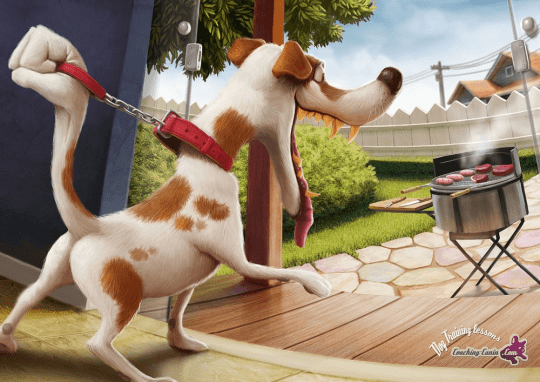A lost cause…

Walking with Ziggy again. We met a chap with a 5 year border collie — a lovely dog, if a little lively.
A typical collie, he was focused totally on his ball, to the exclusion of anything else (not a good thing). I would recommend taking the ball for specific periods of play / exercise and, then to put the ball away and allow the dog to socialise with other dogs and people. Dog’s that are fixated on one thing can develop bahavioural problems (this one was showing a little protection aggression — common in dogs fixated like this one).
However, the dog was a nice animal; he just required more informed handling and some additional training.
This is the nub of this piece. The collie’s owner had taken the dog to a trainer and had been told ‘the dog is untrainable’. Wow! Here we have, again, an ‘expert’ who dismisses a dog in such an offhand manner. My advise for anyone that is told this — about turn and get as far away as possible from said ‘trainer’.
Most dogs can be trained — it requires commitment and effort; sometimes it is far from easy. There are too many ‘trainers’ out there that, clearly, aren’t very good.
The owner is now taking advice from another trainer. This one extolls the virtues of the ‘clicker’. However, as with all forms of training, if the clicker is used properly, it can be effective. This chap, clearly, did not really understand how to use it — so, he was clicking at inappropriate times and confusing his dog.
Again, any ‘trainer, worth their salt will take time to make sure an owner understands, fully, how to use any form of training aid. Not to do so is irresponsible and counter-productive.
A thought regarding dog intelligent. We have all heard ‘my dog is very intelligent, more than other dogs…’ — this owner thought his dog was tricky because of it’s higher level of intelligence than other dogs. Well, here’s what research tells us — dogs all have, pretty much, the same level of intelligence. The important point here, is that some dogs (breeds) are easier to train than others, particularly if you focus on training geared to what they have been bred for (Hart et al, 1985; Scott et al, 1971).
Finally, a take home message. When looking for a dog trainer — choose them with care. Ask around, find out what other people think, quiz your trainer about methods, experience and satisfied customers. As for the trainers out there who write dogs of because their skills aren’t up to scratch— ‘shame on you’.
(Hart, B. and Miller, M. (1985). Behavioural profiles of dog breeds: a quantitative approach. JAVMA, 186(11), pp.1175–1180).
Scott, J. and Fuller, J. (1971). Genetics and the social behavior of the dog. Chicago-London.
